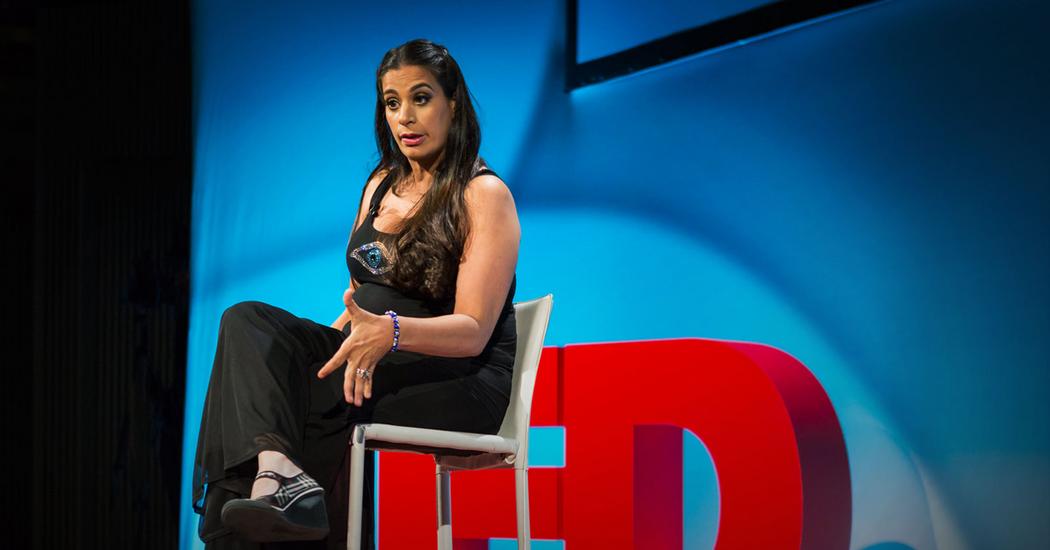Penn Jillette does a podcast called Penn's Sunday School and his latest guest was Sam Harris. These two rich and famous atheists belong to some very privileged groups, and yet they found it appropriate to validate each other's opinions on the topic of cultural appropriation. Penn talked about actors like Scarlett Johansson portraying characters of different races, orientations, etc. as being in the same vein as authors writing characters similarly outside of their own experiences. He said acting is all about playing someone different from yourself, and if you're only allowed to play someone just like you then there's no point. Likewise, if authors weren't allowed to speak for people who are different from them then all writing would have to be memoir. He said the desire to portray someone else should be considered the highest compliment.
It may be true that acting and writing have some important similarities. They both involve extensive research, for example. But one very important difference is that an author does not have to physically embody the characters they write.
I know the topic of cultural appropriation has long been a major point of confusion for a lot of people, maybe even most people, especially when it comes to the distinction between appropriation and appreciation. I've come to understand it like this. Appreciation is saying "I like that." Appropriation is saying "I like that. It's mine now."
I want to explain a little about my personal journey. As an actor myself, I often viewed the paradigm of cis actors playing trans characters as something very innocent and normalized. I'd see movies like "Transamerica" and "The Adventures of Priscilla, Queen of the Desert" and I'd love them. To this day I have to admit that they contributed to my positive feelings towards trans people. I saw the idea of playing a trans person as being this sort of ultimate acting challenge that I might have to take on someday. It never occurred to me to wonder why I didn't see trans actors playing trans characters, and it may not have occurred to many casting directors to wonder that either.
Once upon a time, all characters had to be portrayed by men onstage whether those characters were men or women. While whitewashing in film remains a problem to this day, in the early days of film it was considered a necessity for white actors to portray nonwhite characters. When actress Maysoon Zayid was studying theatre at ASU she got excited when the school decided to put on a production of "And They Dance Real Slow in Jackson" which is about a physically disabled woman, and to her dismay the school cast an able-bodied student in the role. I believe these phenomena are connected, and I believe I know the reason for them.
 |
| Maysoon Zayid |
At some point I was forced to examine the question of why trans characters had to be played by cis actors, and I realized that it's because trans people were so othered by society that the very idea of trans actors was barely thinkable. Trans people were some strange anomaly to be observed and marveled at, not ordinary people that you can talk to and be friends with and invite to a casting call. I know that great progress has been made in the recent past but there's still a long way to go now and I feel like public consciousness was so much worse even just 5 years ago. And the more I think about this, the more I realize that this was about more than just trans people and more than just acting.
This whole pattern also reflects the infantilization of autistic people. All the attention that the mainstream media gives to autism is about autistic children, but the subtext is that it's really about the non-autistic parents of autistic children. The narrative is told as though autistic adults don't even exist because they want you to believe that non-autistic people are the gatekeeping experts on autism and the existence of autistic adults would supplant that. Of course everyone intuitively knows that autistic adults must in fact exist and they're even getting written as characters on TV and in movies, but the prevalence of non-autistic actors playing autistic characters sends a clear message that autistic adults cannot be capably engaged with as fully functional human beings.
Despite all their experience and expertise, I think people like Penn Jillette and Sam Harris are ultimately ignorant of the perspectives of these kinds of marginalized groups. Atheists may be marginalized but they've never been marginalized in way that takes the form of a widespread belief that you can't even be given the responsibility of portraying yourself. This might go without saying, but I no longer aspire to play a trans person and it's not because I'm no longer pursuing an acting career. When you're only thinking about widening your repertoire as far as possible then you're forgetting the other side of it, the people who aren't getting the roles you're taking. It's not about telling a privileged actor they can't play a role, it's about telling a marginalized actor they can.

